When you see a fair form, chase it
And if possible embrace it
Be it a girl or a boy
Don’t be bashful: be brash, be fresh.
Life is so short, so enjoy
Whatever contact your flesh
May at the moment crave:
There’s no sex-life in the grave.
W. H. Auden.
Conversation Piece (1974) is one of Luchino Visconti’s less well-known films, made towards the end of his life in a wheelchair, which explains why the thing was made in a single studio. It’s a classic Euro Pudding of an art-house picture, with an American lead (Burt Lancaster), and Italians (Silvana Mangano, Claudia Cardinale and Romolo Valli), French (Dominque Sanda) and Austrian (Helmut Berger) in supporting roles— shot originally, I think, in English, then dubbed into Italian, and back again into American Bubblegum English. Like one of those dubbed, low-budget Czech television historical dramas they used to show on British television on Saturday mornings, explaining, to some extent, the sense of disconnection. But hey, it’s Visconti. And, as you might expect, it’s an aesthete’s film.
Burt Lancaster plays an ageing, cardigan-clad Italian-American academic, recently widowed (or divorced), living a cultivated, ordered life alone— apart from staff— in an inherited Roman palazzo, surrounded by his substantial art and antiques collections. The Professor was based on the real-life Mario Praz, the splendid Italian scholar and critic of English literature, who also ran a secondary line in the History of Art, including the history of interior decoration. Praz wrote several books on the subject, including Conversation Pieces (1971), which Visconti used for the title of his film, an examination of that especially English genre of the early 18th century: paintings of family groups set in interiors or gardens. Mario Praz’s delightful semi-autobiography, The House of Life (1958), is seen through the story of the antique collections in his flat. Praz’s apartment is now a museum, the Museo Mario Praz, open to the public.
Anyway. The Professor’s civilised life is shattered when the Marchesa Bianca Brumonti (Silvana Mangano), a brash libertine and the wife of an industrialist, turns up and persuades the reluctant Professor to rent out the empty top floor of his house to Lietta, her nubile teenage daughter (Claudia Marsani); Stefano, Lietta’s right-wing (read Fascist?) fiancé (Stefano Patrizi), and Konrad, the Marchesa’s bi-sexual toy boy, a teutonic gigilo played by Helmut Berger, a similar character to the unsavoury Thomas in Losey’s The Romantic Englishwoman (1975)— a film we covered back in March.
And if the Professor’s idea of peace and calm is walls lined in green silk moire, leather-bound books, neo-classsical busts, Biedermeier furniture and Mozart’s Sinfonia Concertante (K 364), his tenants favour the trendy, modernist, space-age look— and sound— of 1970s Milan: white walls, dodgy sub-Rothkos, leather corner sofas, perspex coffee tables and Iva Zanicchi’s Testardo Io (La mia solitudine) belting out through the floorboards on the Hi-Fidelity system. The Old World making way for the New. Like the onset of death, one of Visconti’s obsessions (The Leopard (1963), Death in Venice (1970)). And it gets worse. The family demolish the original upstairs flat and then rebuilds it without the Professor’s permission.
Then Helmut identifies the Professor's recently acquired conversation piece as the work of Arthur Devis (1711-1787), England's finest artist in the genre— and the Prof kinda takes a shine to him. There's more to the boy than meets the eye. Especially the natty polka-dot bow tie, blackshirt combo. I'm assuming this is some kind of latent or buried homosexual attraction, although, if so, Visconti makes it subtle and relatively ambiguous. Perhaps he is more of the lost son he never had? The Professor dreams of his late wife (Claudia Cardinale) and mother (Dominique Sanda). This, perhaps, is what prevents him from throwing the ghastly family out— they become the family he's never had. I mean, in real life, you would be straight on the telephone to your lawyers, would you not? Especially if you woke up to the sight of Lietta, Konrad and Stefano, stark naked and high on weed, having a bi-sexual threesome in your drawing room. This is an amusing and implausible moment in the film, but hey, as a topless Lietta reminds the Professor, quoting W. H. Auden as a way of explanation: 'There's no sex life in the grave'.
I watched Conversation Piece (1974) on YouTube, where somebody happens to have stuck up a decent recording. Otherwise, it’s available on DVD, Blu-ray and on Amazon Prime digital download for a bargain £2.99.
You’ve just been reading a post for both ‘paid for’ and ‘free’ subscribers. To view the other films we’ve covered so far, please go to the Luke Honey WEEKEND FLICKS. archive. ‘Paid for’ subscribers get two weekend film recommendations, access to the entire archive and the ability to comment. By the end of the year, there should be over 100 film recommendations.
I will be back on Friday. In the meantime, I hope you have a relaxing weekend…




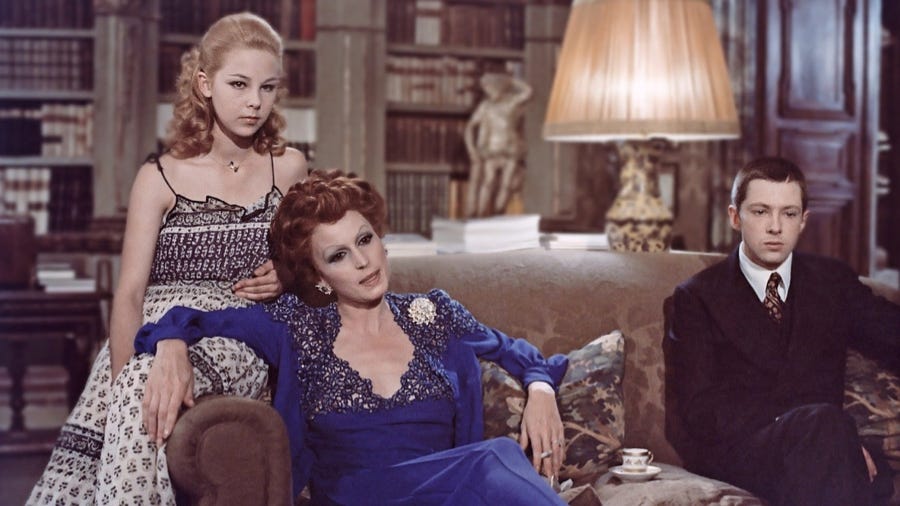
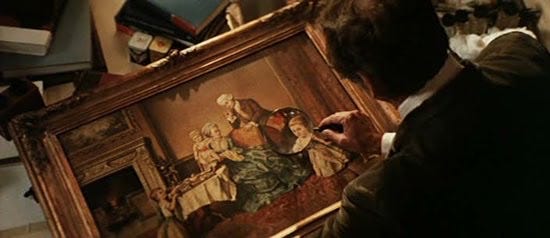
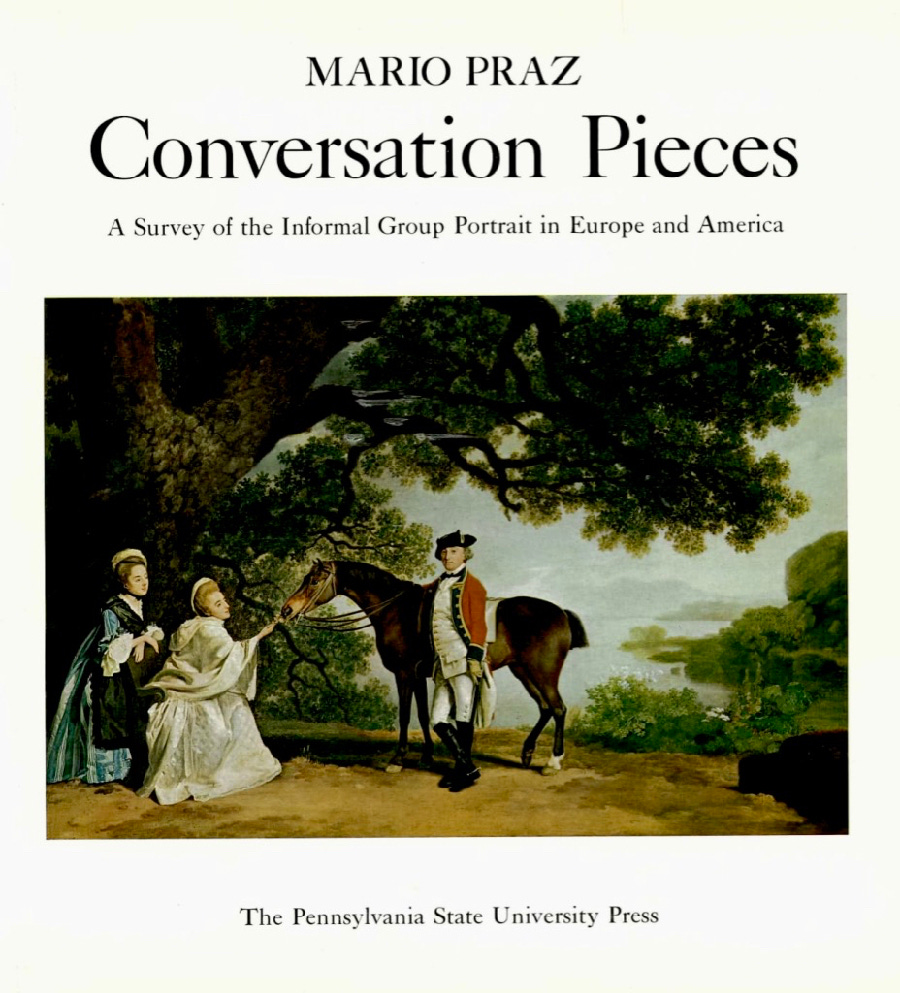
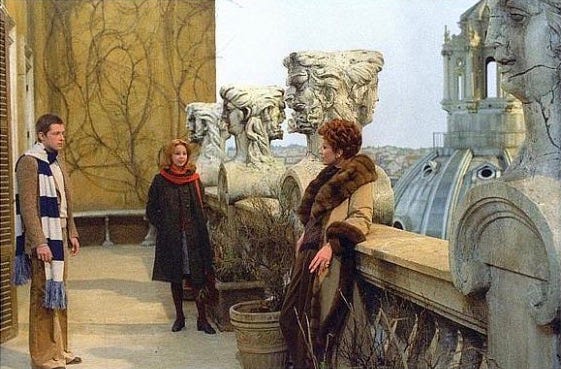
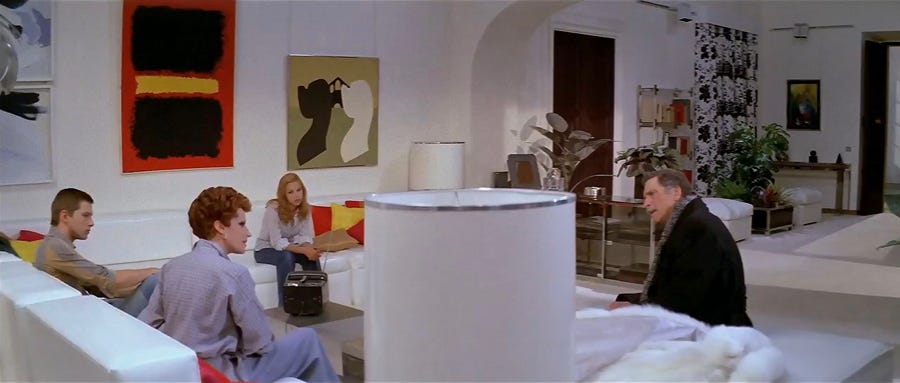

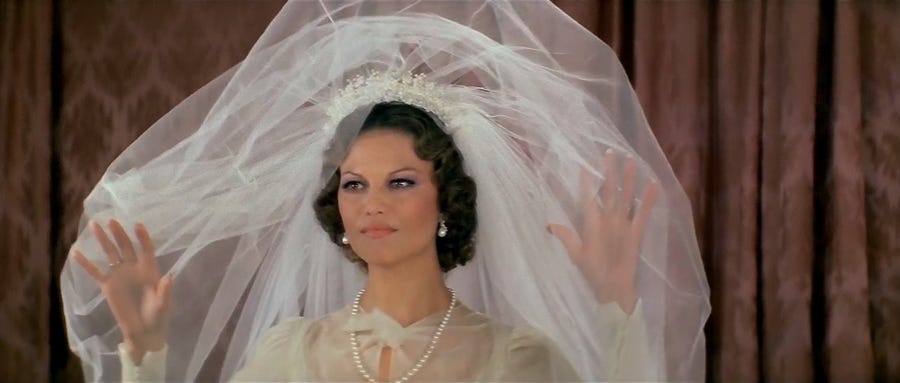
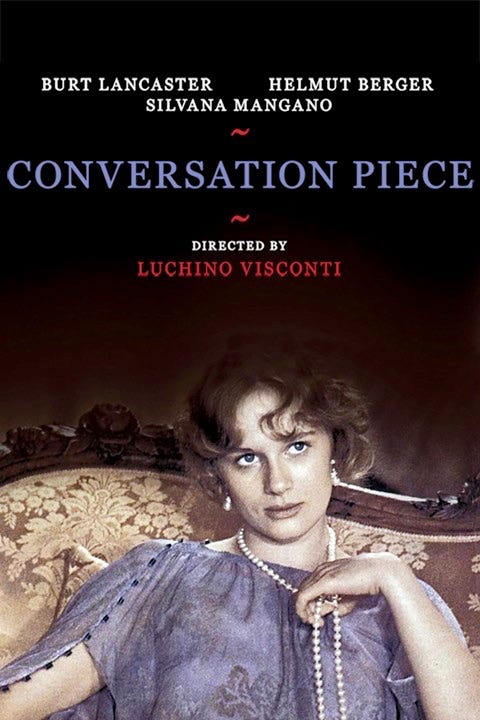
Molto interessante. I think I may have seen this at the BFI donkey's years ago, but your review has piqued my interest and I will seek it out again. An excessive amount of early seventies Italian styling has to be a good thing... doesn't it?